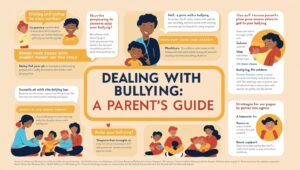
Parenting is a lot more complicated in the 21st century. Part of this is certainly due to the intrusion of technology and the internet into everyone’s daily lives. No longer do parents only have to worry about threats their children may confront when outside the home. They could also face danger while at home on their phones or computers. To help, below are a few good tips you can use to help you learn how to protect your teens online.
Limit Your Children’s Time Online
One easy way to hedge against some of the risk is to make sure they are not connected to the net all day long. Set aside only a certain time of day when using the internet is okay. This should be one to two hours total. The rest of the day should be reserved for other activities. This may seem difficult to accomplish thanks to the advent of smart phones, but apps that allow you to specify when a teen can use the internet are certainly available.
Monitor Their Activity
You can also install programs on their computers and phones to track their online activity. This can give you the ability to find out if they are viewing pornographic websites or visiting other unsavory parts of the internet. You can also obtain logs of e-mails and chats sent through your children’s accounts to make sure they aren’t contacting someone they shouldn’t be.
Protect Their Personal Information
Teens are especially at risk for online identity theft. Unlike adults, teens may not be savvy enough to detect things like phishing scams and might volunteer their personal information. Viruses and hackers may also be able to access your teen’s personal information without their knowledge.
This can lead to serious problems that can scar your children’s record for years. Bad credit resulting from identity theft, for example, may prevent them from obtaining a student loan for college. Thankfully, there are identity protection programs from companies like iTOK that can lower some of this risk by protecting your children’s financial information from outsiders with criminal intent.
Protecting your children online means staying proactive and involved. Whether it is problems like online predators, cyber bullying, computer viruses or identity theft, there are plenty of dangers waiting out there online that could seriously harm your children. Make sure to protect them by limiting their time online and implementing programs that make monitoring their activity and protecting them from threats easier.


